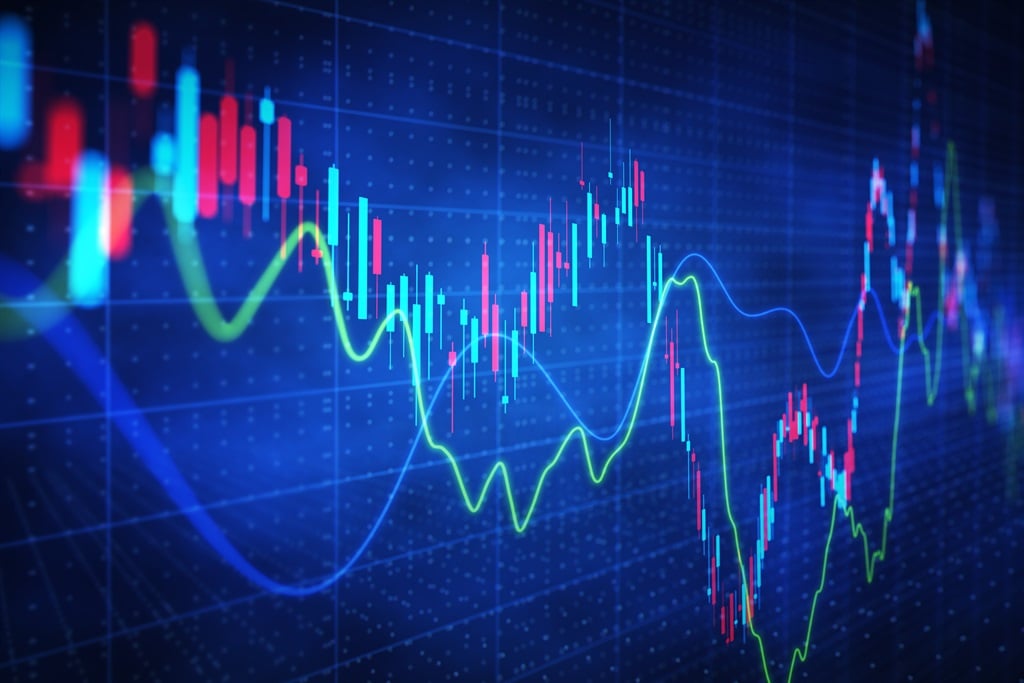
After the wild gyrations witnessed last week, markets got off to a relatively stable start on Monday following Friday’s news that the White House would exempt smartphones, semiconductors, computers and other devices from painful “reciprocal” levies. (Photo: Yuichiro Chino/Getty Images)
Stocks rose on Monday as trade war fears were tempered by Donald Trump’s announcement of tariff exemptions for electronics, although the dollar weakened and safe-haven gold hit a fresh record amid fears the relief would be short-lived.
On Monday morning, the rand was trading below R19/$ for the first time in more than 10 days. It was last at R18.87, from R19.89 late last Wednesday.
As well as fuelling a panic in stock markets, the uncertainty caused by Trump’s trade policy has hit the dollar amid concerns about the outlook for the world’s top economy.
The greenback extended losses against its major peers on Monday, with the euro at a three-year high and the Swiss franc at its strongest in 10 years.
US Treasuries also remain under pressure amid worries that China and other nations could dump their vast holdings, which could call into question the US position as a rock-solid safe haven.
Concerns about the impact of the measures saw Boston Fed chief Susan Collins tell the Financial Times that officials would “absolutely be prepared” to deploy its various tools to help stabilise the financial markets if the need arose.
In a separate interview with Yahoo Finance, she said: “The higher the tariffs are, the more the potential slowdown in growth as well as elevation and inflation that one would expect.”
She added that she expected inflation to rise “well above” 3% this year but saw no “significant” economic downturn.
“Markets currently see three additional cuts in US interest rate cycle this year to support growth, which in turn provides some underpin for SA’s expected two cuts in the repo rate in July and November. However, risks persist too,” Investec chief economist Annabel Bishop said in a note.
Bishop added that SA’s “sensible decisions” on trade tariffs – it hasn’t retaliated against the US and want to negotiate – is bringing some calm.
She added that SA is in a position to offer the US some comparative trade benefits, which may even lower the 10% flat tariff levied on most countries.
In addition, News24 also reported this morning that there were positive signs from a meeting between the DA and the ANC over the weekend. Fears that the DA may exit the government of national unity has concerned foreign investors, and dragged the rand lower.
The JSE’s All-Share index gained 1.5% in opening trading, with Sasol (+4%), Absa (+4%), Woolworths (+3.5%) and Pick n Pay (+3.4%) among the biggest gainers.
Rand-hedge shares declined, including Richemont (-1.6%). Gold producers DRDGold (-1.6%) and Gold Fields (-1.5%) fell even as gold, a go-to asset of safety in times of turmoil, hit a new peak of $3 245.75 on Monday, helped by the weaker dollar.
After the wild gyrations witnessed last week, markets got off to a relatively stable start following Friday’s news that the White House would exempt smartphones, semiconductors, computers and other devices from painful “reciprocal” levies.
The announcement provided a much-needed injection of optimism for investors who had been sent scurrying for the hills in the wake of the US president’s tariff flip-flops and tit-for-tat measures by China.
All three main indexes on Wall Street finished solidly higher, helped by comments from a top Federal Reserve official that the central bank was prepared to step in to support financial markets.
Asia followed suit, with tech firms helping push Hong Kong more than 2% higher, while Tokyo, Shanghai, Sydney, Seoul, Singapore, Wellington and Manila were all well up.
London, Paris and Frankfurt rallied at the open, while US futures were all sharply higher.
“After a period of chaotic price action, chinks of light poke through the forest canopy providing a much-needed guide to the entities that price risk and liquidity for a living, which in turn, may see liquidity conditions improve and a relative calm return to markets,” said Chris Weston at Pepperstone.
However, Trump looked to temper the remarks on Sunday, saying the exemptions had been misconstrued and writing on his Truth Social platform that “NOBODY is getting ‘off the hook’… especially not China which, by far, treats us the worst!”
He said he would announce new tariffs on semiconductors “over the next week”.
His commerce secretary, Howard Lutnick, said earlier that chip levies would likely be in place “in a month or two”.
Chinese President Xi Jinping said on Monday that protectionism “leads nowhere” and that a trade war would have “no winners”, days after Beijing hit US goods with 125% duties but also suggested it would not retaliate further in the future.
Washington has ramped up tariffs on Chinese goods to 145% and excluded it from a 90-day pause of crippling levies the White House announced on Wednesday.
Data on Monday showed Chinese exports soared more than 12% last month as businesses rushed to get ahead of the swingeing tariffs, with the United States remaining the largest single destination, accounting for $115.6 billion worth of goods.
However, Julian Evans-Pritchard, head of China economics at Capital Economics, warned: “But shipments are set to drop back over the coming months and quarters.
“It could be years before Chinese exports regain current levels.”


